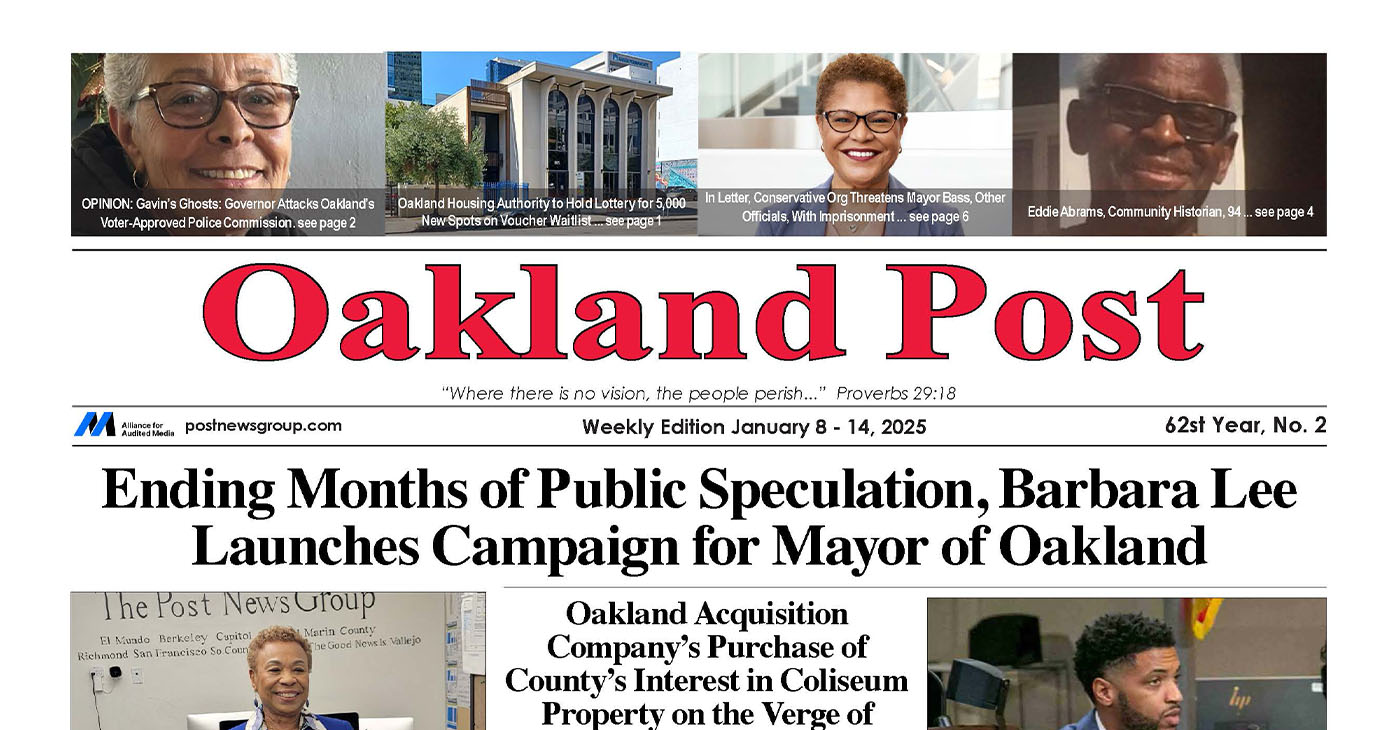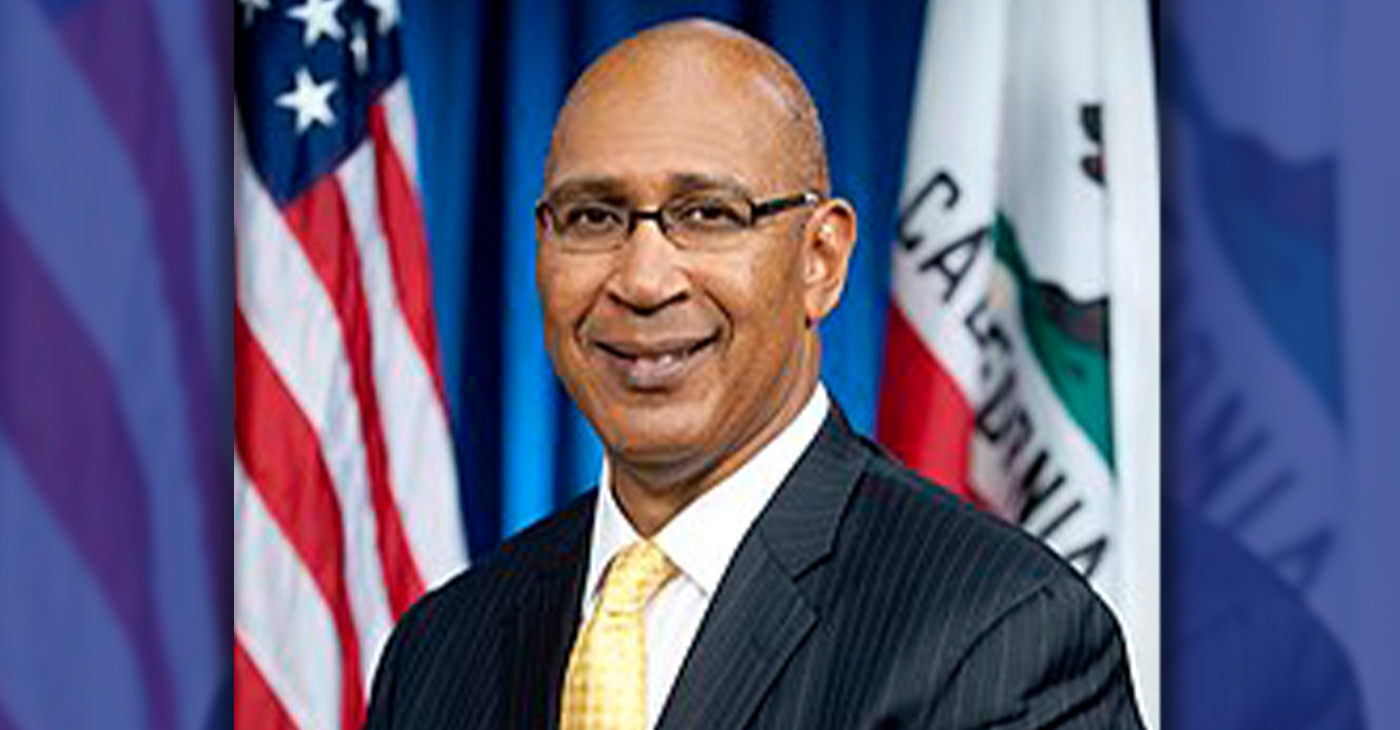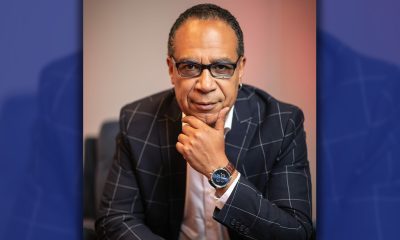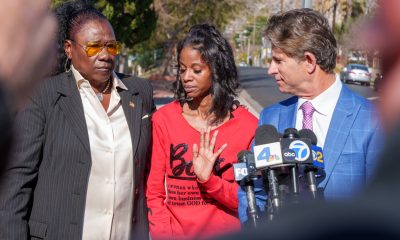California Black Media
California Legislature Fails to Pass Concealed Firearm Law on a Technicality
As gun violence plagues the country, the tug-of-war between gun rights and gun regulations on a local and national level will likely continue. Although California has some of the toughest gun laws in the country, the Legislature has yet to find a solution for concealed carry permits.

By Maxim Elramsisy | California Black Media
On the last night of this year’s legislative session last week, the State Assembly rejected Senate Bill (SB) 918, authored by state Sen. Anthony Portantino (D-La Cañada Flintridge). The bill — written to strengthen restrictions on concealed firearm permits — was one of several bills the Legislature did not approve during the tension-filled finale to a session marked by pointed debate among members of the Assembly’s Democratic majority.
Before the final vote, supporters of the legislation added an Urgency amendment so it could go into effect immediately — instead of Jan. 1, 2023, when bills passed during the current legislative session take effect.
As an Urgency Measure, SB 918 required 54 votes in the Assembly to pass, rather than the usual 41. The bill received 53 votes which is more than enough votes needed to reach the Governor’s desk had the urgency amendment not been added.
Last June, the Supreme Court of the United States ruled in New York State Rifle & Pistol Association v. Bruen that “may carry” laws giving states discretionary authority to reject concealed carry permits violated the Second Amendment. The decision rendered California’s law requiring applicants to show “good cause,” or a justifiable reason for needing such a permit unconstitutional.
In his opinion on the case, Justice Clarence Thomas, wrote that states could still prohibit guns in “sensitive places.” Chief Justice John Roberts, joined by Justice Brett Kavanaugh, wrote in a concurring opinion that the ruling did not affect “shall issue” laws requiring objective licensing requirements such as “fingerprinting, a background check, a mental health records check, and training in firearms handling, and in laws regarding use of force, among other possible requirements.”
SB 918 complies with the Supreme Court ruling by designating courts, places of worship, zones around schools, hospitals, public parks, libraries, airports, public transportation and bars as sensitive places. The bill requires authorities to review publicly available statements including social media to assess whether applicants present a danger to the public.
Applicants would be required to submit to in-person interviews to ensure they are “qualified,” and licensing officials will be required to interview at least three-character references. The state would also give licensing officials, usually a sheriff’s office, greater ability to revoke a license.
Initially, leaders believed that the measure had enough support to pass with an urgency amendment allowing it to go into effect this month. After the bill passed the Senate with a super majority (2/3) of the votes, it failed to gain a super majority vote in the State Assembly. Seven Democratic Assemblymembers voted against the bill or abstained from voting.
Notably, two Democratic members, Adam Gray (D-Merced) and Rudy Salas (D-Bakersfield) who are running for Congress in swing Central Valley districts may have felt the possibility of a political backlash by supporting gun control measures. Retiring Assemblymember Patrick O’Donnell (D-Long Beach), voted against the measure, though he was expected to support it.
“I’m very disappointed in the outcome,” the bill’s author, Portantino, told California Black Media. “But for one assembly member who switched their vote from aye to no, we would have had the 54 votes. I plan on reintroducing the bill on Dec. 5. I’ve already spoken to the governor and the Attorney General.”
If it had passed, the bill was likely to face legal challenges because many critics believe that it is too restrictive. The requirement of interviews and character references are points of contention for gun rights groups.
For Gov. Gavin Newsom, prioritizing gun control measures is still a leading priority in this legislative term, responding to an uptick of gun violence across the country. As of Sept. 2, the Gun Violence Archive reports 450 mass shootings in 2022, compared to 417 in all of 2019.
“California has the toughest gun safety laws in the nation, but none of us can afford to be complacent in tackling the gun violence crisis ravaging our country,” said Newsom. “These new measures will help keep children safe at school, keep guns out of the hands of dangerous people and responsibly regulate the sale of firearms in our communities.”
Though defeated in this attempt to regulate concealed firearms, Newsom has a number of notable legislative victories, including AB 2571, which restricts the marketing of firearms to children and AB 1594, which strips gun manufacturers of some legal protections when their products are used to commit acts of violence. SB 1327 and AB 1621 target ghost guns by restricting their manufacture, transportation and sale and close the loophole that allowed sale of incomplete and unserialized “firearm precursors.”
As gun violence plagues the country, the tug-of-war between gun rights and gun regulations on a local and national level will likely continue. Although California has some of the toughest gun laws in the country, the Legislature has yet to find a solution for concealed carry permits.
“Together, all of the gun laws that we passed make California safer,” Portantino said, “though not having a CCW (concealed weapons permit) consistent with the Supreme Court decision hurts California, which is why I’m committed to bringing it back on Dec. 5.”
Activism
Oakland Post: Week of January 8 – 14, 2025
The printed Weekly Edition of the Oakland Post: Week of January 8 – 14, 2025

To enlarge your view of this issue, use the slider, magnifying glass icon or full page icon in the lower right corner of the browser window.
Activism
2024 in Review: 7 Questions for Former Assemblymember Chris Holden
While in office, Holden championed efforts to improve education outcomes for students and advocated for social and racial justice. Legislation he wrote or sponsored also focused on, innovation in transportation, protecting developmental disability service providers and improving public health, more broadly.

By Edward Henderson, California Black Media
In 2012, Assemblymember Chris Holden was first elected to the California State Assembly representing the 41st District in the San Gabriel Valley.
He was re-elected to that position for the following four terms.
While in office, Holden championed efforts to improve education outcomes for students and advocated for social and racial justice. Legislation he wrote or sponsored also focused on, innovation in transportation, protecting developmental disability service providers and improving public health, more broadly.
Holden, a graduate of San Diego State University, lives in Pasadena with his wife, Melanie, and children Nicholas, Alexander, Austin, Mariah and Noah. Holden is the son of former State Senator and LA City Councilmember Nate Holden.
Before he closed out his final year of service in the Assembly, California Black Media (CBM) spoke with Holden. He reflected on his accomplishments this year and his goals moving forward.
Looking back at 2024, what stands out to you as your most important achievement and why?
A project I’ve been working on for well over 36 years — the light rail system — made its way into Pasadena from downtown LA. Now it’s making its way through the San Gabriel Valley to Pomona.
How did your leadership and investments contribute to improving the lives of Black Californians?
Having an opportunity to represent a multi-ethnic and diverse district is exciting, but to be able to bring a voice for a lived African American experience from the San Gabriel Valley is very important.
What frustrated you the most over the last year?
I still am frustrated that we aren’t seeing the kind of progress on affordable housing to allow underrepresented communities to be able to afford to live in the community that they grew up in.
What inspired you the most over the last year?
There has been a lot of movement around reparations through community engagement. Dr. Shirley Weber put forth the bill to establish a reparations task force and that task force met for a number of years. Two members of our caucus served on it, Sen. Steven Bradford and Assemblymember Reggie Jones-Sawyer. A thousand-page report and a hundred recommendations or more came out of that. And now we’re in the process of finding ways to implement some of those recommendations. It’s going to be a longer process, but I’m hopeful because California, once again, is on the front end of taking on a really challenging issue.
What is one lesson you learned in 2024 that will inform your decision-making next year?
Always be mindful how quickly the winds can change. We’ve gone from 10 years of having budget surpluses to this year having a $45 billion deficit.
In one word, what is the biggest challenge Black Californians face?
Inequality.
What is the goal you want to achieve most in 2025?
Well, I won’t be in the legislature in 2025, but I love public policy. I’d like to find myself in a position where I’m continuing to have an influence on how public policy is shaped and formed. I’m just looking forward to being a vital voice going into next year in a different role. It will also be an opportunity to lay a foundation to take another run, possibly for a seat on the LA County Board of Supervisors in 2028.
Activism
2024 in Review: 7 Questions for Equality California Political Director Shay Franco-Clausen
Shay Franco-Clausen is an award-winning public advocate, speaker, political strategist and former elected official. She has contributed her thought leadership to drafting seventeen pieces of legislation in California. Notable among these accomplishments is her role in extending the statute of limitations for felony domestic violence survivors, advocating for the rights of foster youth, preserving endangered open spaces, and championing the restoration of voting rights for individuals on parole.

By Edward Henderson, California Black Media
Shay Franco-Clausen is Political Director for Equality California, the nation’s largest statewide LGBTQ+ civil rights organization.
Franco-Clausen is an award-winning public advocate, speaker, political strategist and former elected official. She has contributed her thought leadership to drafting seventeen pieces of legislation in California. Notable among these accomplishments is her role in extending the statute of limitations for felony domestic violence survivors, advocating for the rights of foster youth, preserving endangered open spaces, and championing the restoration of voting rights for individuals on parole.
California Black Media (CBM) spoke with Franco-Clausen about her successes, frustrations and future plans heading into 2025.
Looking back at 2024, what stands out to you as your most important achievement and why?
In the role that I sit in as the political director for Equality California, we endorsed 216 candidates. I think the one achievement after this election that I’m proud of is that we overturned Prop 8 to protect same-sex marriages here because they’re about to attack our rights on the federal level, come 2025.
I’m glad at least we changed our California constitution to reflect and protect my marriage.
How did your leadership and investments contribute to improving the lives of Black Californians?
I contribute through my lived experience. I may have achieved a lot, but I come from those same communities that are marginalized, East Oakland, East San Jose, Watts. It gives me a different perspective. I am a formerly incarcerated youth who was in foster care. I think I contribute that bit of understanding, and I operate from an equity lens. I’m willing to push people to make them recognize that hey, you cannot forget about Black people. We are the most marginalized.
What frustrated you the most over the last year?
What frustrates me is our inability to recognize that we forget people. I was tapped to work on the Harris campaign from Equality California. And through that, being at that table, I was frustrated that they weren’t listening to Americans and not looking at the data.
The reason Trump won is because he had consistent messaging, and we didn’t debunk it. I think I’m more frustrated that we don’t fully listen to people all the time when they’re critiquing us.
What inspired you the most over the last year?
All those people that came out to support Kamala Harris. I was proud that my son voted for the first time for a Black woman for President.
What is one lesson you learned in 2024 that will inform your decision-making next year?
Be fearless. Sometimes I second-guess myself. I push back, but I could push more because I’m qualified. I have the education, I have the experience, and I know what I’m talking about in all the rooms that I go in. And I must be confident in that.
In one word, what is the biggest challenge Black Californians face?
Prioritization.
We’re still not seen as a priority, but everyone likes to add us to their talking points.
What is the goal you want to achieve most in 2025?
Writing a book. I think it’s important for us to tell our stories.
I am also kicking off my campaign for Hayward City Council.
-

 Activism3 weeks ago
Activism3 weeks agoBooks for Ghana
-

 Arts and Culture4 weeks ago
Arts and Culture4 weeks agoPromise Marks Performs Songs of Etta James in One-Woman Show, “A Sunday Kind of Love” at the Black Repertory Theater in Berkeley
-

 Bay Area3 weeks ago
Bay Area3 weeks agoGlydways Breaking Ground on 14-Acre Demonstration Facility at Hilltop Mall
-

 Activism4 weeks ago
Activism4 weeks ago‘Donald Trump Is Not a God:’ Rep. Bennie Thompson Blasts Trump’s Call to Jail Him
-

 Activism3 weeks ago
Activism3 weeks agoLiving His Legacy: The Late Oscar Wright’s “Village” Vows to Inherit Activist’s Commitment to Education
-

 Arts and Culture3 weeks ago
Arts and Culture3 weeks agoIn ‘Affrilachia: Testimonies,’ Puts Blacks in Appalacia on the Map
-

 Alameda County3 weeks ago
Alameda County3 weeks agoAC Transit Holiday Bus Offering Free Rides Since 1963
-

 #NNPA BlackPress4 weeks ago
#NNPA BlackPress4 weeks agoCalifornia, Districts Try to Recruit and Retain Black Teachers; Advocates Say More Should Be Done





















































